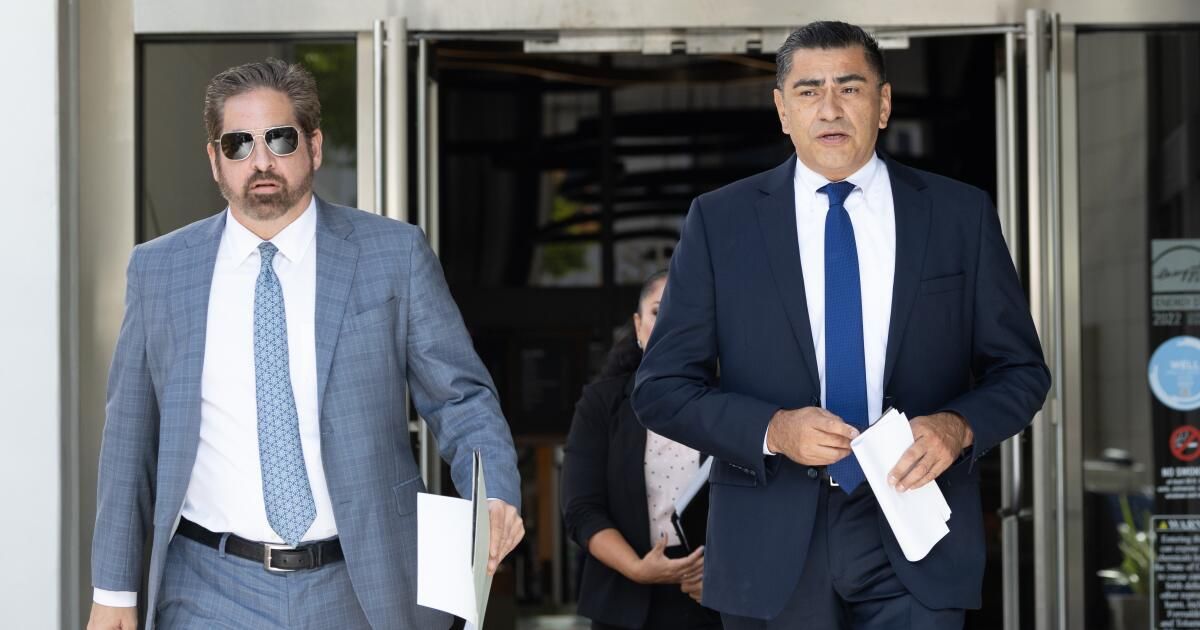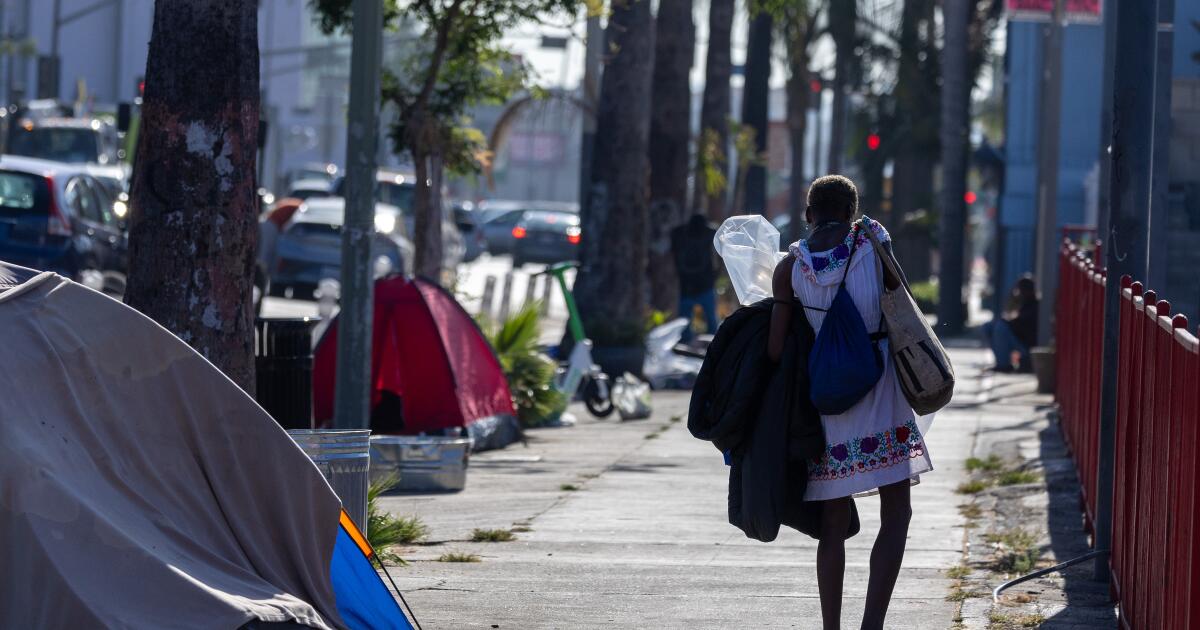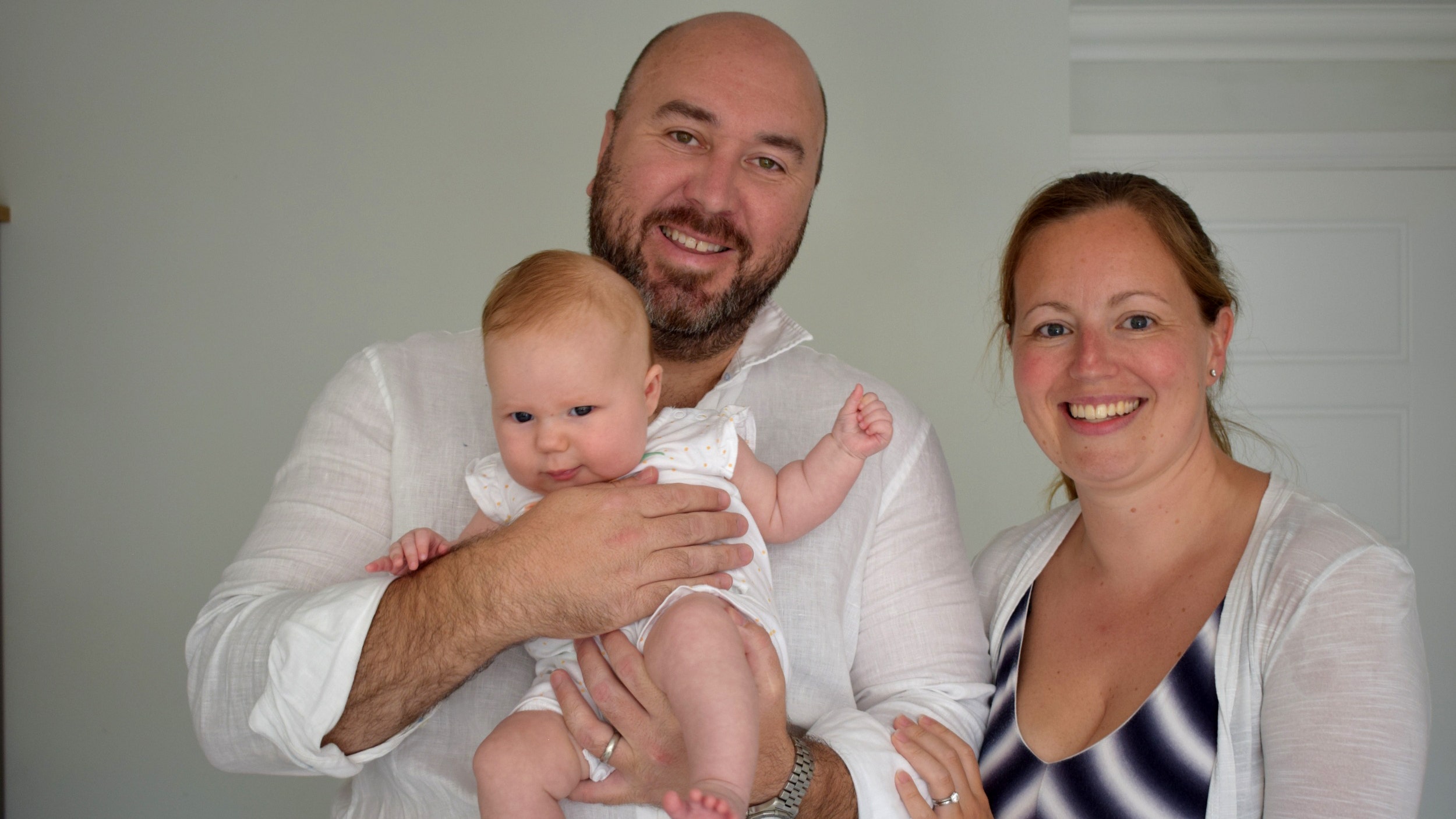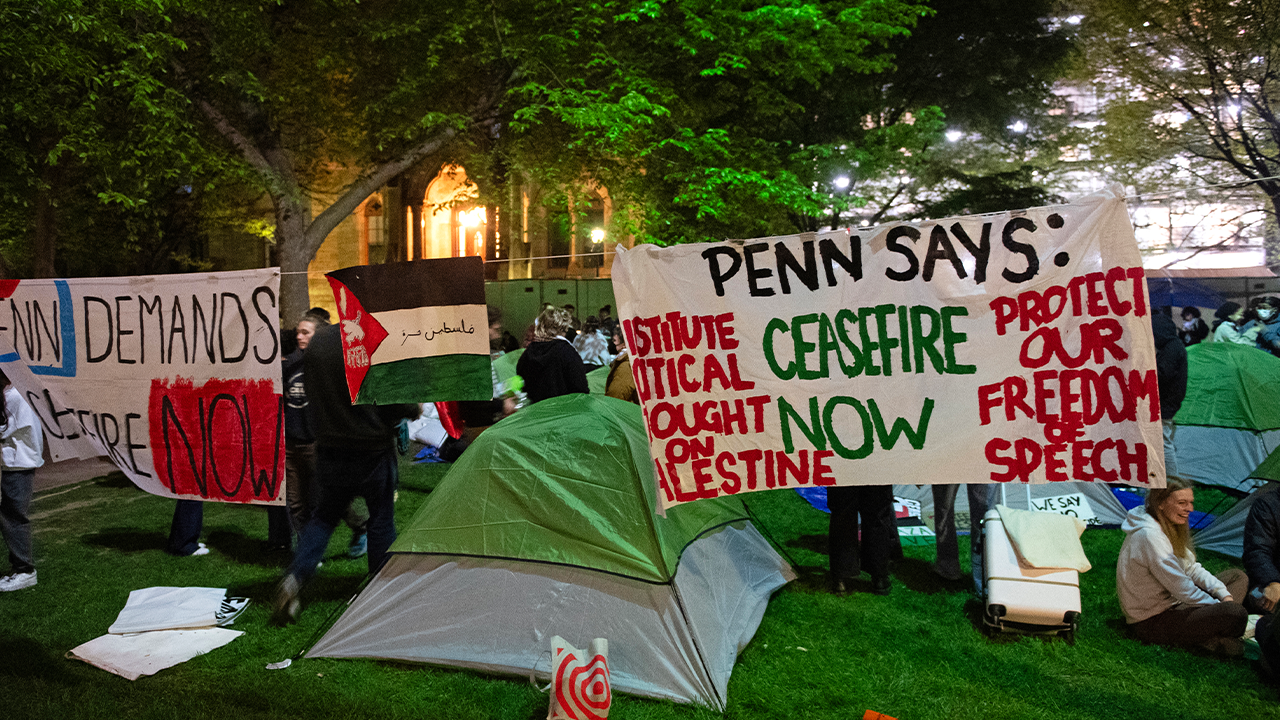Former Los Angeles Police Deputy Chief Alfred “Al” Labrada has retired from the department after a disciplinary board found he secretly tracked down a fellow officer with whom he was romantically involved and then tried to cover his tracks, according to three sources familiar with the case.
The board found Labrada guilty Monday of all seven charges he faced, including lying to internal affairs detectives and trying to persuade a witness not to testify in a department investigation into the matter, according to a source who requested anonymity to discuss normally secret proceedings.
The three-member panel was supposed to meet again in October to decide the appropriate discipline for Labrada, who was facing dismissal. But Labrada confirmed Friday through a spokesman that he would be leaving the department; his retirement is retroactive to July 1, the spokesman said.
An email sent to the Los Angeles Police Department requesting Labrada's employment status was not immediately returned Friday.
The panel’s unanimous decision represents a stunning fall for an officer who was then-Chief Michel Moore’s second-in-command and appeared poised to take the reins of the department. The case against Labrada stems from allegations by LAPD Officer Dawn Silva, who said he placed an Apple AirTag under the bumper of her car to track her movements while the couple was ending their live-in relationship.
Under city charter, LAPD disciplinary hearings are conducted as mini-trials, with evidence and witnesses, in front of a three-member panel. With very few exceptions, the proceedings are held behind closed doors, in windowless hearing rooms in the Professional Standards Bureau office on Figueroa Street.
Labrada’s hearing, which spanned several weeks, was described to the Times by someone familiar with the case who was not authorized to speak publicly. The three-civilian panel heard evidence suggesting Labrada tried to cover up his actions when questioned about Silva’s allegations.
Among the charges the department is alleging Labrada lied to the internal affairs department. The panel heard that Labrada initially told investigators he had purchased AirTags to track his luggage while on a Caribbean cruise. But after investigators obtained a search warrant for his city-issued phone, they found screenshots in his “Recently Deleted” folder that suggested he had used the devices to monitor Silva’s movements on numerous occasions over several months.
In a statement Friday, Labrada criticized what he described as “the political influence that has tainted the LAPD Internal Affairs and Rights Board process.”
“Having witnessed firsthand the lack of due process, I am now more determined than ever to fight for the officers whose lives have been impacted by this flawed system. Furthermore, I am deeply disappointed by the failures of the Internal Affairs process,” the statement read. “Upon rising to the rank of Deputy Chief, the second highest position within the LAPD, I never imagined that my impeccable service record and three decades of dedication would be tarnished by a malicious and baseless attack.”
After The Times reported on the allegations last fall, Labrada was relieved of his duties, demoted to commander and recommended for dismissal, pending a disciplinary panel known as a rights board that would determine whether he would be fired.
The department's investigation also revealed that Labrada unlinked the tracking devices from her phone almost immediately after receiving a call from Moore telling her she was under internal investigation. Investigators also discovered text messages they described as threatening and possessive that Labrada sent to Silva during their relationship.
In one message, he allegedly warned her not to “bend over” other men, using a homophobic slur in Spanish. In others, he sent her a knife emoji and wrote “be good or I will cut you” and repeatedly demanded she tell him if she “loved him.”
The department also accused him of trying to coerce a witness in the case, another LAPD officer, not to testify, and allegedly threatened to reveal damaging information about the officer. In presenting its case, the department called several witnesses to testify, including Silva and Deputy Chief Daniel Randolph, who told the panel that Labrada’s actions after being placed under investigation suggested a “consciousness of guilt.”
Labrada's attorney called several former senior LAPD officials to testify about his character during the proceeding, including former Deputy Chief Dennis Kato, who testified that he had known Labrada since Labrada was a young sergeant and had always considered him a person of integrity.
Robert Arcos, a top Los Angeles County district attorney who has applied for the LAPD’s police chief job, described his former protégé as a hard worker and a staunch advocate for the Latino community. But when pressed by a department lawyer, Arcos said he would recommend firing any employee who, like Labrada, lied.
Attorneys for the department argued that because of concerns about his credibility, Labrada would no longer be allowed to testify in court.
Before his demotion, Labrada had been one of the highest-ranking Latinos in the department’s history. He has repeatedly denied that he deliberately followed Silva. This year, he filed a lawsuit against the LAPD with the government — a precursor to a lawsuit — accusing Moore of violating his due process by speaking publicly about his case before it was resolved. Moore, he claimed, had often been more lenient, a double standard that emerged when Moore failed to take similar action against another former LAPD deputy chief who had an inappropriate relationship with the same woman as Labrada.
Silva has sued the city, alleging that department officials failed to protect her from backlash after she accused Labrada. She has a temporary restraining order against him, which is set to expire next year. As a condition of the order, Labrada is prohibited from possessing firearms unless he meets certain conditions.
In his lawsuit, Labrada accused Moore — who retired in late February but said he would continue to work for the LAPD as a consultant — of leading a campaign to block his career advancement, and said his former boss felt threatened at a time when he was facing criticism over declining morale and staffing shortages. Labrada also cited an alleged culture of favoritism at the LAPD under Moore that involved looking the other way when the chief’s allies were accused of misconduct.
Following a police investigation into the AirTag-related allegations — which stemmed from a September report filed with San Bernardino County authorities — prosecutors declined to file criminal charges against Labrada, citing a lack of evidence. The board's ruling raises new questions about that decision.
On Friday, Labrada said in his statement that he would continue to explore his legal options.
“My quest for justice is far from over. I will exhaust every avenue available to me to ensure that the justice system in the United States, whether within a government agency like the Los Angeles Police Department or in a court of law, remains fair and fulfills its essential role of upholding a free and open legal system for all,” the statement reads.
His words echo similar criticisms of the rights board process by officers who have sued the department and the police union. In recent months, a broader debate over reforming the department’s much-criticized disciplinary system has sparked tension between the union and some high-ranking department officials.
Late last month, the City Council approved a ballot measure that would give the police chief the authority to directly fire officers for certain serious misconduct, while eliminating the option for officers to have their disciplinary cases reviewed exclusively by civilians.
In February, Silva sued the city for sexual discrimination, harassment and retaliation, alleging that her romance with Labrada from October 2017 to July 2023 ended “due to the toxic nature of their relationship.”
She claimed Labrada continued to send her messages, even after a highly publicized press conference on Oct. 7 during which he vehemently denied the allegations she made against him. Labrada said at the time that the media coverage of his case had caused him “significant emotional and physical distress.”












